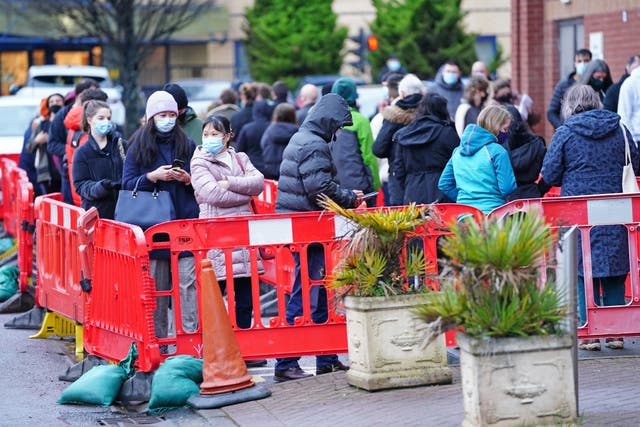Public services are resorting to emergency plans to mitigate staff shortages caused by the Omicron variant of coronavirus.
Ongoing issues
At least six hospital trusts have declared critical incidents – where priority services may be under threat. Boris Johnson said on 3 January that he would “make sure that we look after our NHS any way that we can”. The education secretary said schools should be prepared to merge classes into large groups if staff levels dipped too low.
Health leaders, meanwhile, warned the health service was “in a state of crisis”, and a headteacher predicted remote learning could return if school staff were struck down with the virus.
The Daily Telegraph reported that up to 10 million “critical” workers would be able to access coronavirus (Covid-19) tests through their employers, after days of complaints that they could not be ordered online and stocks in pharmacies were patchy.
In the meantime Chris Hopson, chief executive of NHS Providers, which represents health trusts, said “a number of trusts across country have declared internal critical incidents over the last few days”.
One of those was United Lincolnshire Hospitals NHS Trust, where “extreme and unprecedented” staff shortages were expected to result in “compromised care”.

“Critical incident”
Chief executive of University Hospitals of Morecambe Bay Aaron Cummins confirmed in a statement that the trust had declared an “internal critical incident”. In an internal message from Cummins shared on Twitter, he told staff that “sadly, despite everyone’s best efforts, many of our patients are still receiving a level of care and experience that falls below the level of standards we would like”.
Meanwhile, Geoff Barton, general secretary of the Association of School and College Leaders, said:
It’s hard to imagine that if the NHS is being affected, that retail is being affected, if sporting fixtures are being affected, it’s hard to see why you wouldn’t in schools and colleges have the same issues around staff shortages.
Bin collections and train services have also been hit.
A further 157,758 lab-confirmed coronavirus cases were recorded in England and Scotland as of 9am on 3 January, the government said. Scotland saw its highest number of daily cases yet. The government also said a further 42 people had died in England within 28 days of testing positive for coronavirus.
Separate figures published by the Office for National Statistics show there have now been 174,000 deaths registered in the UK where coronavirus was mentioned on the death certificate.
Schools return
Some pupils returned to the classroom on 4 January with new advice to wear masks in the classroom. The move has been recommended for secondary school pupils in England, alongside testing twice a week.
Education secretary Nadhim Zahawi said:
What we’re saying is, look, with Omicron, because it’s so infectious, we want to make sure that we give you as many tools to be able to make sure that education is open.
He added:
This is an aerosol-transmitted virus and if you’re wearing a mask, if you’re asymptomatic, then you’re less likely to infect other people.
It is hoped the return of masks may prevent the need to disrupt children’s education further.















